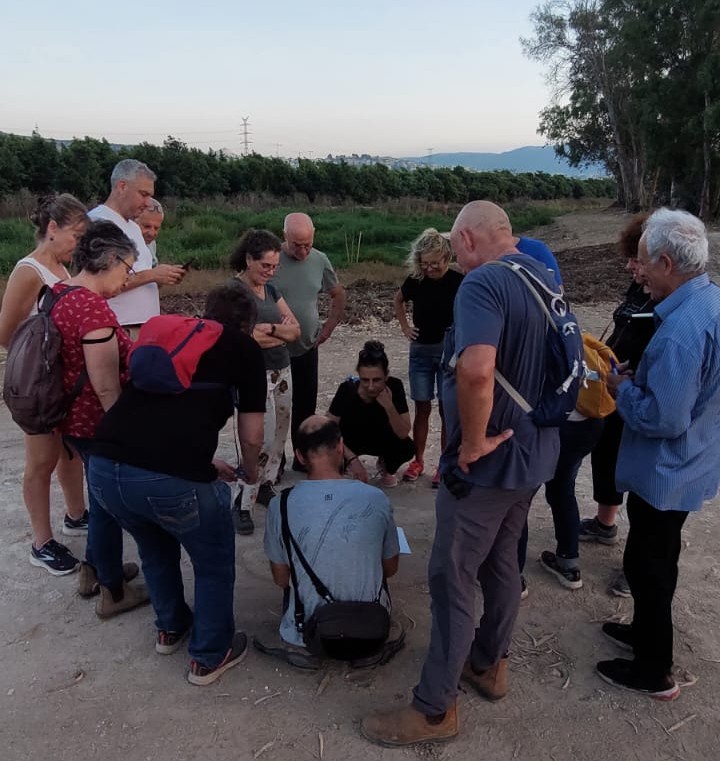The Zippori Stream Restoration Project constitutes an infrastructure for the development of innovative models in many fields, including in the field of citizen science.
In collaboration with the University of Haifa, the Technion, and the Zevulun and Jezreel Valley regional councils, a unique initiative called “Yes to My Birds” was established – a first-of-its-kind project that combines stream restoration, scientific research, community activity, and educational action.
As part of the project, scientists and residents work together to create new knowledge that serves science, the environment, and the local community alike: Several groups of volunteer residents from the communities along the stream were trained to monitor a variety of aspects of the local ecosystem of Nahal Zippori.
The groups engage in systematic monitoring of invasive vegetation, mammal tracks, butterflies, birds, lizards, rare plants, and more.
Civilian monitoring in the stream area complements the monitoring work led by expert ecologists. While professional monitoring is usually conducted once or twice a year, civil monitoring allows for the collection of information throughout the year, at all hours of the day, including weekends.
The scope of information collected by volunteers from the community allows for a broader picture of the biodiversity in the restored stream, and helps draw conclusions about the relationship between plant and animal species and the abiotic conditions created following the restoration.

To improve the quality of civilian monitoring products, the project is integrated into innovative research led by the AI4Biodiversity team at the University of Haifa in collaboration with other academic institutions. As part of the research, the data is being refined and refined using artificial intelligence technologies, so that this data can be used in a manner similar to monitoring data collected by professional surveyors.
The educational activity of “Yes to My Birds” is led by the Center for the Advancement of Citizen Science in Schools (TCSS), in collaboration with a group of researchers from the University of Haifa and the Technion. The researchers accompany schools in the process of building and implementing citizen science projects. This activity takes place in collaboration with the Kishon Drainage and Streams Authority team, accompanied by Dr. Achiad Davidson – the center of “Yes to My Birds”.
In the first phase of the project, two high school classes in the Zevulun Regional Council are participating in the program – the “Carmel Zevulun” school in Kibbutz Yagur and the “Ramot Zevulun” school in Ivtin.
The students went out into the field, to the “Marlin” area where the Zippori Stream was restored and the floodplain was cleared, and conducted an in-depth environmental study: they toured the area, conducted monitoring, examined the ecological environment of the stream, photographed plant and animal species, tested the water quality, and conducted fascinating scientific measurements. At the end, the students entered their findings into the iNaturalist app.
The activity was integrated into the biology and science curricula, enriching the students’ world while encouraging an exploratory look at their local space and strengthening the connection to the stream and its environment. The activity allowed the students to learn about the restoration process of Nahal Zippori, deepen their scientific knowledge, and strengthen their sense of responsibility for preserving nature.
Knowledge-building partnership
The “Yes to Birds” project demonstrates how an environmental restoration process can become a lever for connecting and strengthening the connection between science, education, and community. In collaboration between academic institutions, authorities, professionals, students, and volunteer residents, a unique model was built in which knowledge is created together, from and with the field.
Combining scientific monitoring by experts with citizen monitoring deepens understanding of restoration processes, and promotes responsibility, curiosity, and civic engagement. This is a significant step toward a future where nature conservation is a shared scientific, community, and educational mission.
For more information
About the “ Yes to Birds ” project on the website of the Center for the Advancement of Citizen Science.
